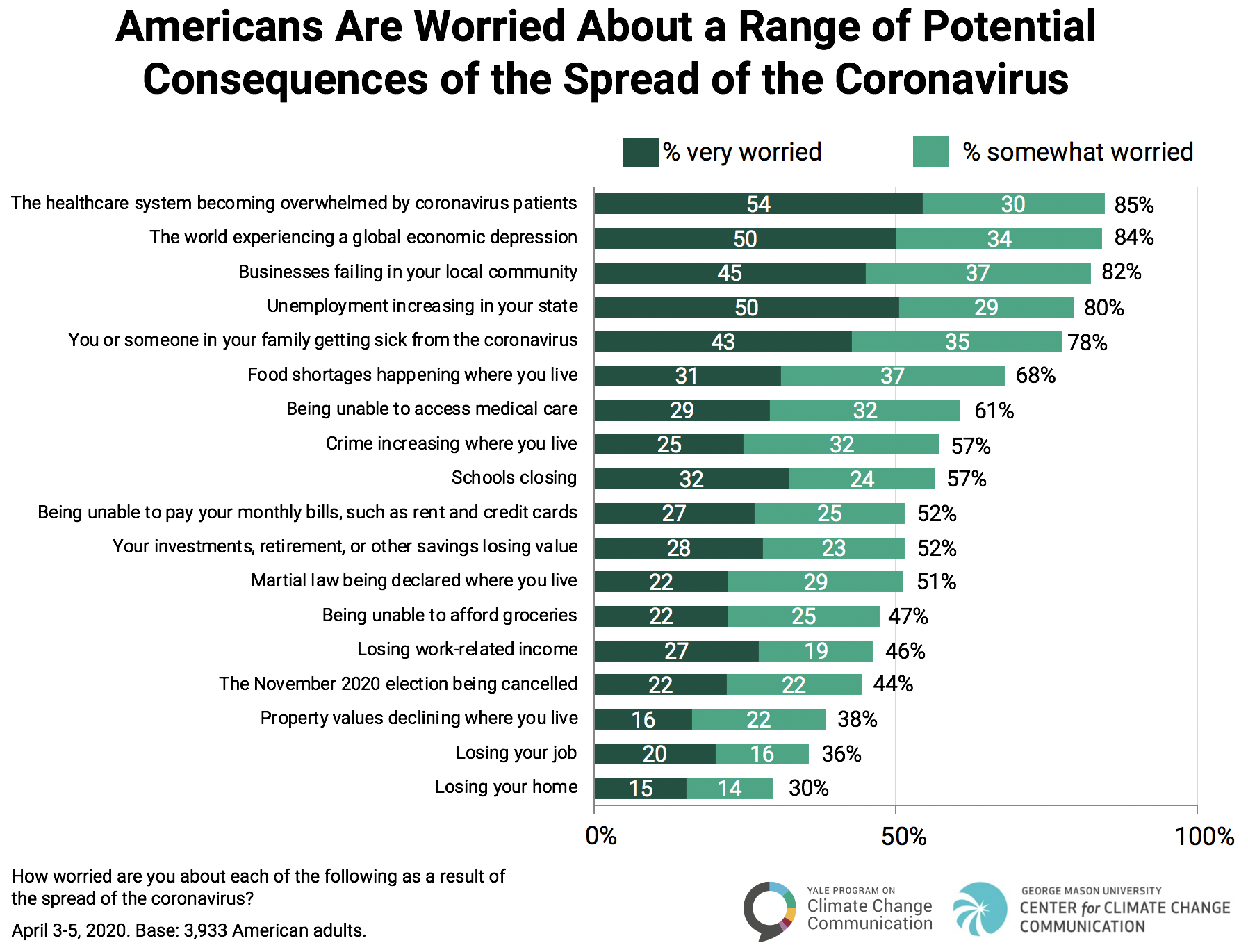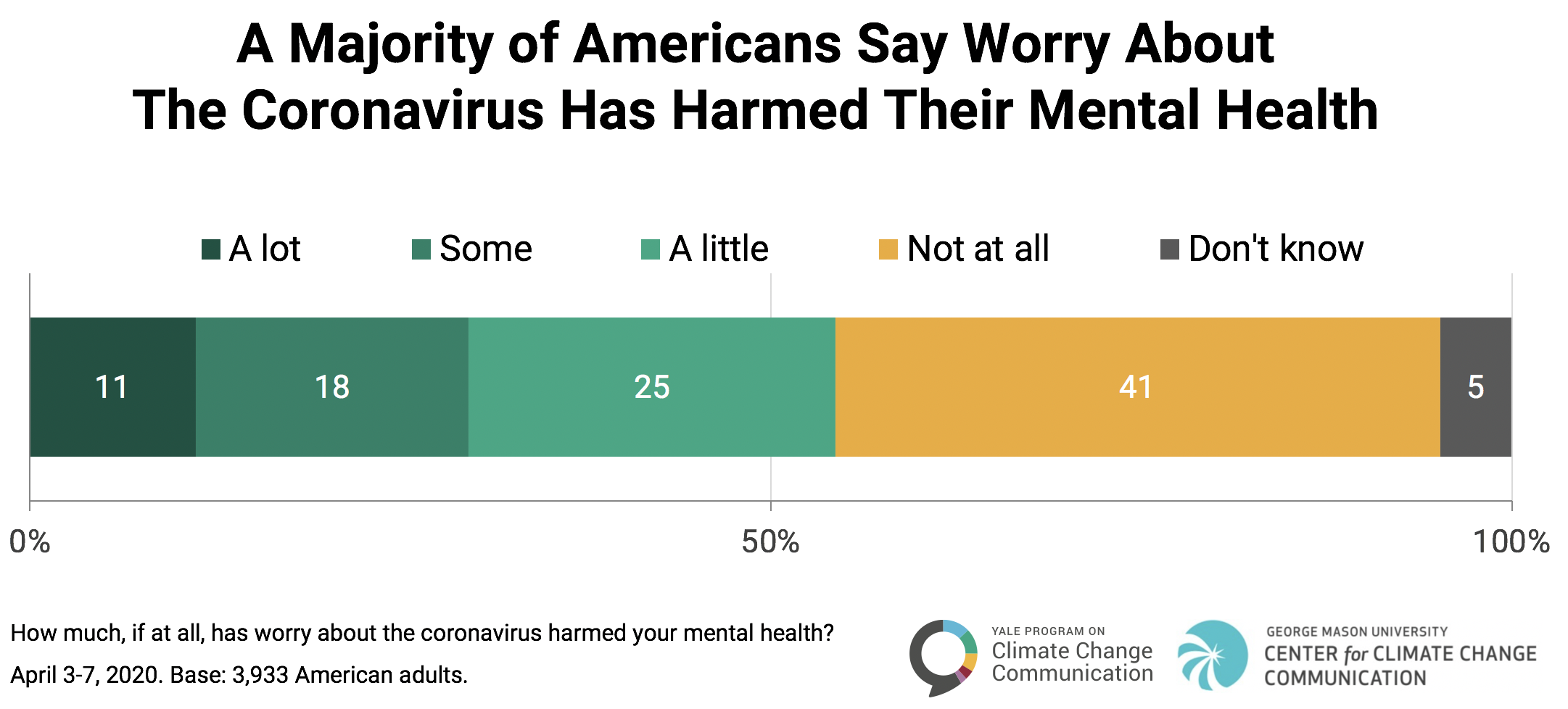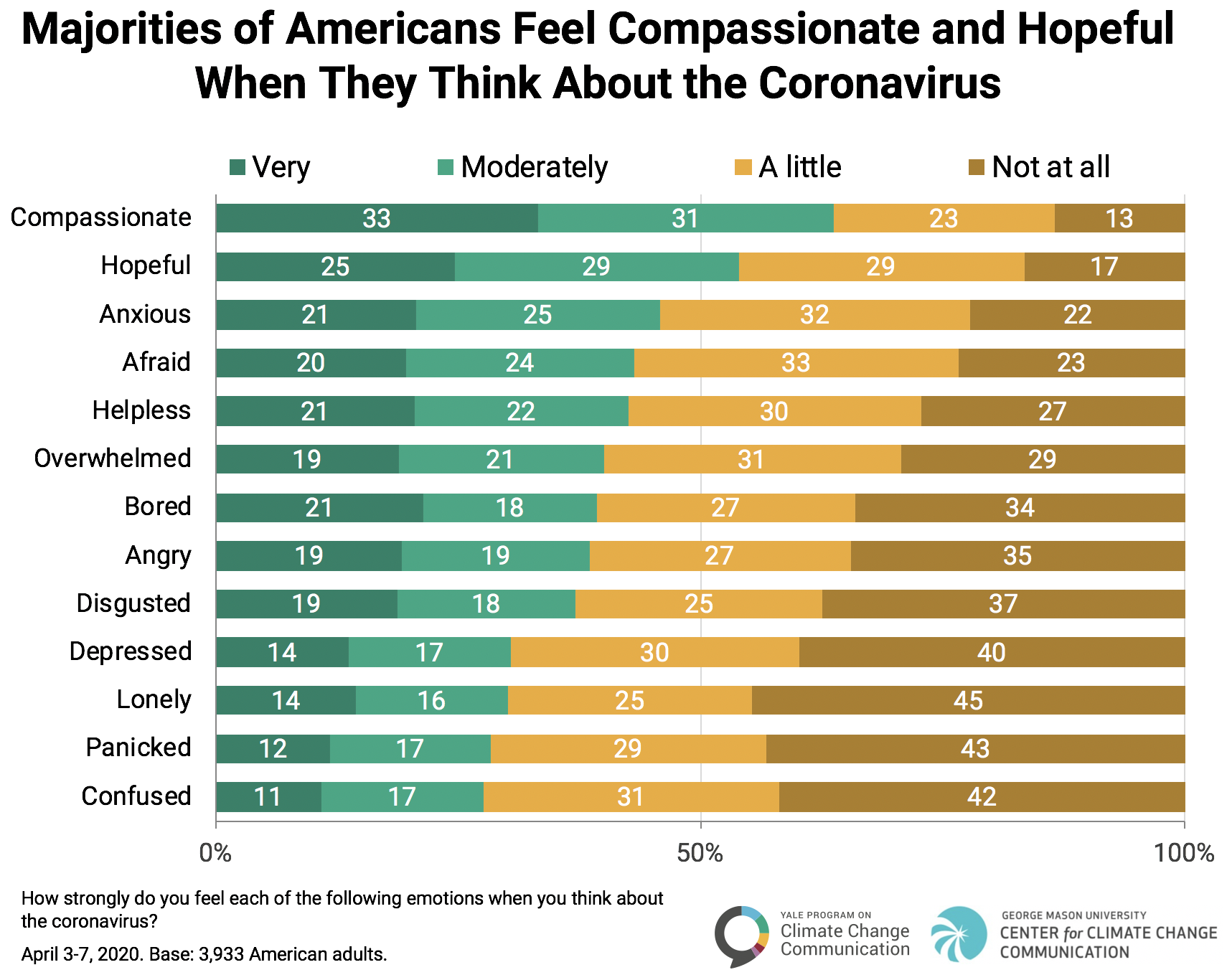Report · Apr 30, 2020
Americans’ Risk Perceptions and Emotional Responses to COVID-19 – April 2020
By Matthew Ballew, Parrish Bergquist, Matthew Goldberg, Abel Gustafson, John Kotcher, Jennifer Marlon, Seth Rosenthal, Edward Maibach and Anthony Leiserowitz
Filed under: Messaging
2. Emotional Responses to COVID-19
2.1. Americans are worried about a range of potential consequences of the spread of the coronavirus.
Large majorities of Americans are worried about the healthcare system and the economy as a result of the spread of COVID-19. Eight in ten or more are worried about the healthcare system being overwhelmed by coronavirus patients (85%), the world experiencing a global economic depression (84%), businesses failing in their local community (82%), and unemployment increasing in their state (80%).
Majorities of Americans are also worried that they or someone in their family will get sick from the coronavirus (78%), and about food shortages happening where they live (68%), being unable to access medical care (61%), crime increasing where they live (57%), and schools closing (57%). About half of Americans are worried about being unable to pay monthly bills, such as rent and credit cards (52%), their savings losing value (52%), and martial law being declared where they live (52%).
Four in ten or more Americans are worried about being unable to afford groceries (47%), losing work-related income (46%), and the November 2020 election being cancelled (44%). Fewer Americans are worried about property values declining where they live (38%), losing their job (36%), and losing their home (30%).
Hispanics/Latinos are more likely than other Americans to say they are “very worried” about being unable to access medical care and experiencing several economic consequences, such as losing their job, work-related income, or their home (see Appendix I: Data Tables, pp. 61-96). Also, liberal/moderate Republicans are more likely than other Americans to say they are “very” or “somewhat worried” about experiencing economic consequences, including losing their job, work income, or their home, as well as declines in their investments or property values where they live (see Appendix I: Data Tables, pp. 61-96).
2.2. A majority of Americans say worry about the coronavirus has harmed their mental health.
A majority of Americans say worry about the coronavirus has harmed their mental health either “a lot” (11%), “some” (18%), or “a little” (25%). About four in ten (41%) say “not at all.”
Older Americans (aged 60+) and conservative Republicans are more likely than other Americans to say “not at all” when asked if worry about the coronavirus has harmed their mental health (see Appendix I: Data Tables, pp. 59-60). Liberal/moderate Republicans, on the other hand, are more likely than other Americans to say it has harmed their mental health “a lot” (see Appendix I: Data Tables, p. 60).
2.3. Majorities of Americans feel compassionate and hopeful when they think about the coronavirus.
Although many Americans are worried about the spread of the coronavirus and its impacts, majorities of Americans also feel compassionate (64% “very” or “moderately”) or hopeful (54%) when they think about the coronavirus. Four in ten or more also feel anxious (46%), afraid (43%), helpless (42%), or overwhelmed (40%). Three in ten or more feel bored (39%), angry (38%), disgusted (37%), depressed (30%), or lonely (30%). Fewer Americans feel panicked (28%) or confused (28%).
Younger Americans (18-29) are less likely than other Americans to say they feel compassionate when think about the coronavirus and are more likely to say they feel bored (see Appendix I: Data Tables, pp. 55 & 57). Older Americans (aged 60+) are more likely to say “not at all” when asked if they feel depressed, panicked, confused, or bored (see Appendix I: Data Tables, pp. 33-58).


